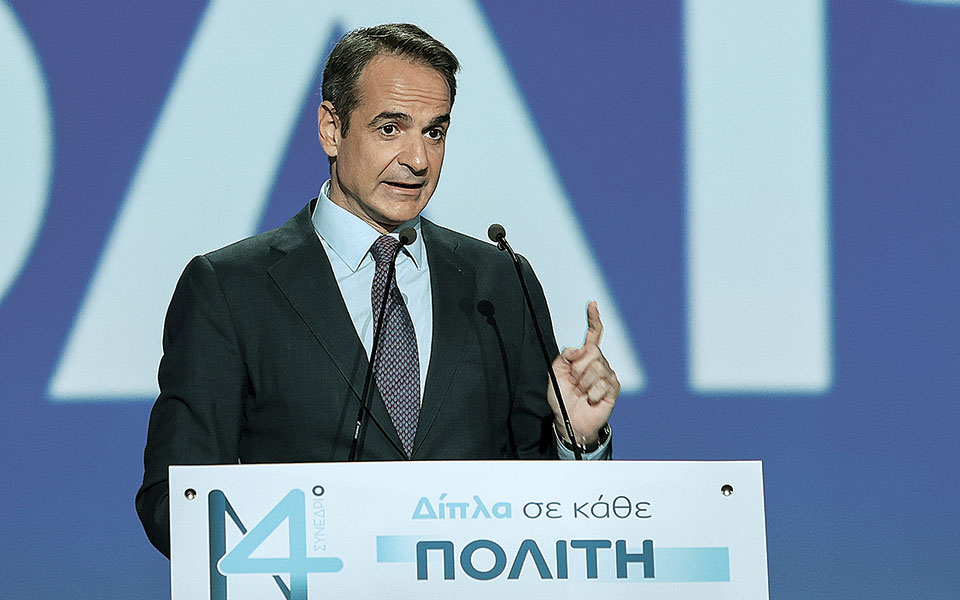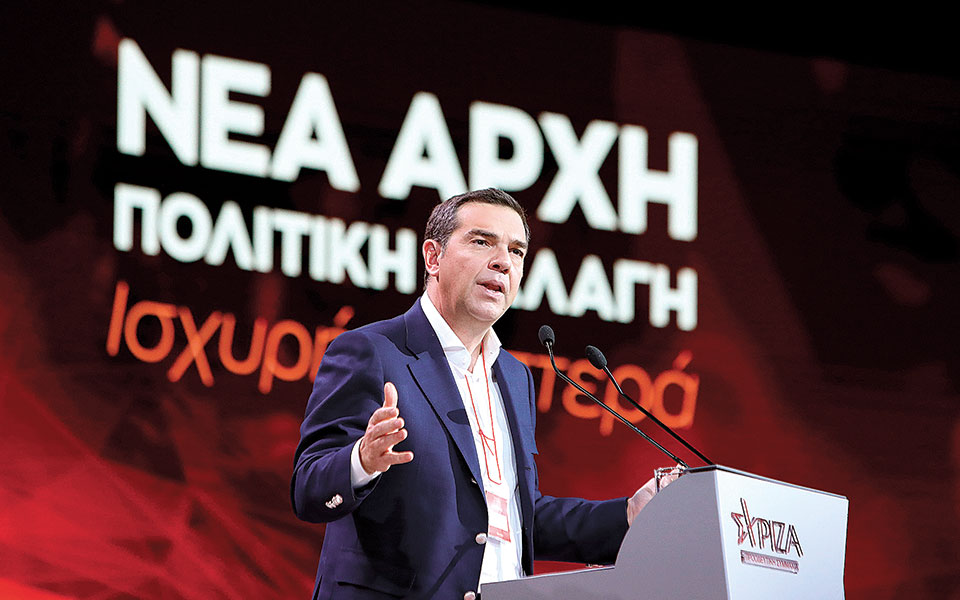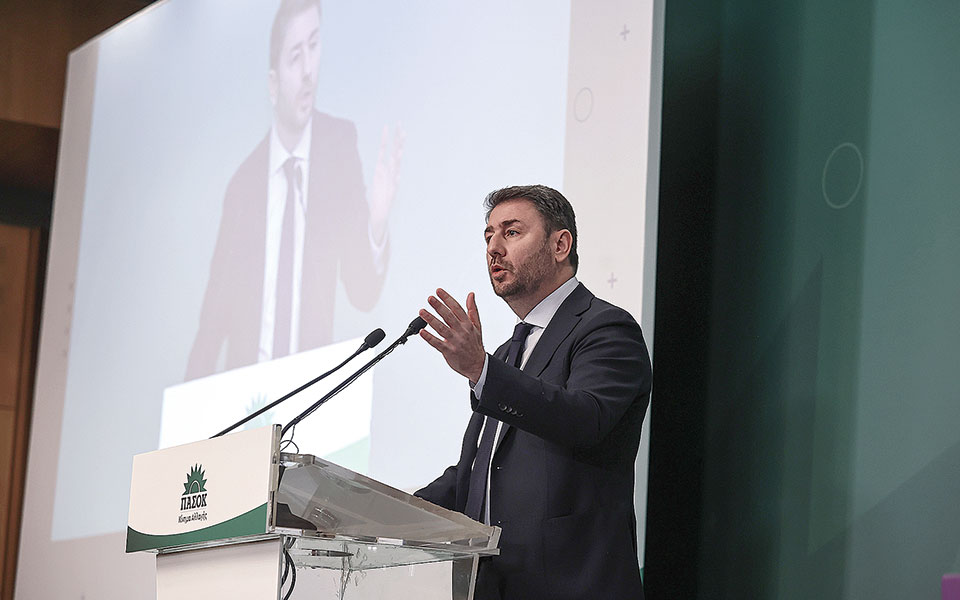
“Five plus one” – government formation scenarios or after the upcoming elections her simple analogue what “lock” for April 9or, most likely, in the second election, which will be held in accordance with the ND electoral laws. OUR registers “K” all possible and less likely scenarios for the formation of a ruling majority of 151 deputies were discussed, in the light of the current polls but also the public positions of the parties. An important parameter is that the ND puts forward the goal of self-reliance after the second election, while SYRIZA refers to the progressive government after the first election, although the “numerical” for its formation turns out to be very difficult in practice.
5+1 scenarios for the “magic number” 151
Stavros Papantoniou
With the election just around the corner, “K” is trying to shed light on all the possible scenarios that could arise after the first and second vote, as the parties – quite justifiably – do not show their cards for all occasions, sensibly aiming at the current maximum possible result in a simple analog confrontation that is “locked” on April 9th.
Scenario 1: N.D. to succeed, as he aspires, in the second election to gain independence and form a government, since the exploratory mandates of a simple proportional ballot box will be fruitless. To implement this scenario, N.D. he should get more than 37%, maybe even 37.5% in the second election. The exact percentage will depend on how many parties remain outside the parliament, since their percentage in the aggregate, the higher it “drops” the percentage of independence. Megaros Maximos believes that in order to implement this scenario, ND will gain more than 33% -34% in the first elections, so the government constantly talks about the criticality of the first vote, “which will give a political result.”
Scenario 2: N.D. not gain independence in the second election. Everything becomes more complicated there, because then he will either have to go to the third election, which is very difficult, or look for allies. The most likely ally in this case is Nikos Androulakis, with whom, however, for the sake of holding a second election, cooperation at the first will be rejected. The one who refused cooperation at first, in a month will have to convincingly explain why he accepts it, and this is not easy.

Of decisive importance is the overall percentage of parties that will not enter parliament.
Scenario 3: Co-government N.D. – PASOK from the first election. A very important role will be played by the ratios that the ballot box will give out in the first elections. If, therefore, in the first polls the PASOK percentage is particularly high, and the ND is not what was expected, i.e. hovering around 30%-31%, then one can start a discussion about a joint government of the two parties from the very beginning. In this case, PASOK had to receive a very large percentage, close to 15%, to justify its entry into the government, and also for the two parties to “add up” the required percentage so that they cumulatively over 151 MPs. A thorn in this scenario is that Nikos Androulakis has in the past stated that he would cooperate without Prime Minister Mitsotakis or Tsipras, which he has recently stopped mentioning with the same intensity, suggesting “convergence” on programmatic positions.
Scenario 4: Co-government of SYRIZA-PASOK and other forces, essentially MeRA25 G. Varoufakis. For this, two conditions must be met: firstly, SYRIZA must be the first party, since Mr. Tsipras has ruled out a “government of losers”, and secondly, the parties must collect more than 45% against 47% in order to be able to this script to succeed. In other words, it is absolutely essential for Mr. Varoufakis to get into the next parliament, and SYRIZA and PASOK together should get between 42% and 44% of the total. This government – with the ND describing it as “Frankenstein” – it will actually be very unstable, as it is expected to have no more than 151, no more than 152 deputies.
Scenario 5: “Government of Losers”. This is a scenario in which SYRIZA, together with PASOK and MeRA25, will form a co-government from the first elections, with SYRIZA not being the first party. This is what the New Democracy calls a “government of losers” and is sounding the alarm, asking voters that the outcome of the first election be such that there is no room for it. The percentage that the parties will need again exceeds 45%, and since SYRIZA is more likely to be the second party of Maximos, they consider him more “dangerous” to implement, although, as mentioned above, Mr. Tsipras publicly rejects this. .
+1: There is also another scenario: ND after the second election, he will be so close to forming a government that he only needs a few MPs to exceed the “magic number” of 151. Some argue that he can get the votes of individual MPs, perhaps from the Greek decision. although “The central “scenario” of cooperation between the two sides is rejected in the most categorical way.
Discussions in SYRIZA, PASOK
Antonis Anzoletou
Many election scenarios are generating intense debate within SYRIZA and PASOK as the post-election landscape is blurred and the lines between Koumunduru and Harilaou Trikoupis have become confused in many cases.
Koumunduru’s strategy for the “government of the winners”, as outlined by Alexis Tsipras in Zappeio, which differentiates it from TIF, where he simply slowed down the “government of the losers”, has not changed. No other plan is accepted by the official opposition, even if the leaders of the left wing believe that the rigid framework introduced by the leadership leaves unused the “horizons” opened by a simple analogy. The feud between Presidential and Umbrella was partially revived after Panos Skurletis’ statement to SKAI. The parliamentary representative of the official opposition expressed the opinion that in the event of the defeat of N.D. all cases are possible. The no-star win strategy will unfold throughout the pre-election period.

Since the blue party’s priority is self-reliance, from Komunduru in the next period they will emphasize even more strongly that Kyriakos Mitsotakis wants to plunge the country into adventures with continuous electoral battles. As for the convergence scenarios, N.D. – PASOK, neither in the first nor in the second elections, take it for granted that the wiretapping case does not give Nikos Androulakis the opportunity for any “manoeuvres” with the current government.
In PASOK, they line up behind the line set by Nikos Androulakis and clearly articulated in “K” last Sunday. “One of the conditions for participating in government formation discussions is to have a strong percentage so that we can impose our programmatic priorities as a field of convergence, as is the case in states with strong liberal democracies.” What do they see in PASOK? An attempt to take away voters from two “big men” who will not stop, no matter how many “friendly attacks” they make against H. Trikupis.
Those who do not want a repeat of the 2012-2014 period are reminded that the party, due to cooperation with the ND, has reached the worst performance in its history. Alexis Tsipras’ meeting with George Papandreou at the event caused a “headache” for those leaders who believe that SYRIZA, investing in a progressive governance narrative, will not leave the event idle. The denial of the political nature of the meeting calmed the wing of the party, which believes that the results of the first vote cannot rule out cooperation with New Democracy in order to avoid a repeat election. Bearing in mind, however, that the majority in the PASOK database are right-wing. A number of leaders react to the possibility of any co-management and warn of “running out” of space if the entire “field” of the Movement is again open to one of the two main parties.
Surveys and partnerships
Dora Antoniou
The reality of the numbers sets the context for possible post-election events, placing limits on the political choices and manipulations that party headquarters can make. PULSE CEO Giorgos Arapoglu says that recently there has been a stabilization of the image given by surveys of various companies regarding the assessment of the election results. A fact that makes it easier the next day.

According to the latest PULSE measurement, with the proportional distribution of the undecided and the scenario of a five-party parliament, the percentage of parties is as follows: N.D. 37%, SYRIZA 28.5%, PASOK 12%, KKE 6.5% and Hellenic Solution 4.5%, with the percentage of parties remaining outside the parliament being 11.5%. With these percentages in simple proportional elections, New Democracy gets 125 seats, SYRIZA 97, PASOK 41, KKE 22 and Hellenic Solution 15. The main emerging scenarios are: 1) N.D. with PASOK, which collect 166 seats. 2) Cooperation between SYRIZA, PASOK, KKE. Three parties gain 160 seats. 3) Cooperation SYRIZA, PASOK, Hellenic Solution. Together they gain 153 seats. 4) Collaboration between SYRIZA, PASOK, KKE and Hellenic Solution. Together they gain 175 seats. Obviously, the last three scenarios are practically impossible to implement, since the KKE is not going to participate in the government, and SYRIZA and PASOK are not going to negotiate with Mr. Velopoulos.
If it manages to pass the threshold of Parliament and MePA25, the percentage of non-parliamentary parties is 8.5% and they receive: N.D. 121 seats, SYRIZA 94 seats, PASOK 39 seats, KKE 21 seats, Hellenic Solution 15 seats and MeRA25 10 seats. Possible scenarios in this case: 1) N.D. with PASOK. The two parties collected 160 seats. 2) Cooperation between SYRIZA, PASOK, KKE. Three parties gain 154 seats. 3) Collaboration SYRIZA, PASOK, Hellenic Solution, MeRA25. They are gaining 158 seats. 4) Cooperation of ND, KKE, Hellenic Solution. They are gaining 157 seats. But the “sweep” for the last three scenarios is KKE and Greek Solution.
With a strengthened proportional and five-party parliament, N.D. provides ultimate independence with 151 seats. However, with the six-party parliament, N.D. receives 148 seats, SYRIZA 80, PASOK 34, KKE 18, Hellenic Solution 12 and MeRA 25 8 seats. Possible scenarios in this case are: 1) ND, PASOK with 182 seats and 2) SYRIZA, PASOK, KKE, Hellenic Solution and MERA25 with 152 seats.
According to Mr. Arapoglu, there do not seem to be any conditions for sharp disagreements. However, he adds that the PASOK percentage can be decisive. And this is because, as he mentions, the party shows fluctuations in its percentages. The other dimension has to do with the banning of the Kasidiaris party and whether potential voters will switch en masse to the side of the party entering parliament.
Source: Kathimerini
Emma Shawn is a talented and accomplished author, known for his in-depth and thought-provoking writing on politics. She currently works as a writer at 247 news reel. With a passion for political analysis and a talent for breaking down complex issues, Emma’s writing provides readers with a unique and insightful perspective on current events.